HKFP’s on-the-ground reporting is also appearing in The Guardian.
Around a hundred people, many wrapped up warm to keep wintry temperatures at bay, waited outside a monolithic Hong Kong court building on Monday morning for tickets to watch the landmark national security trial against pro-democracy media mogul Jimmy Lai begin from the public gallery.
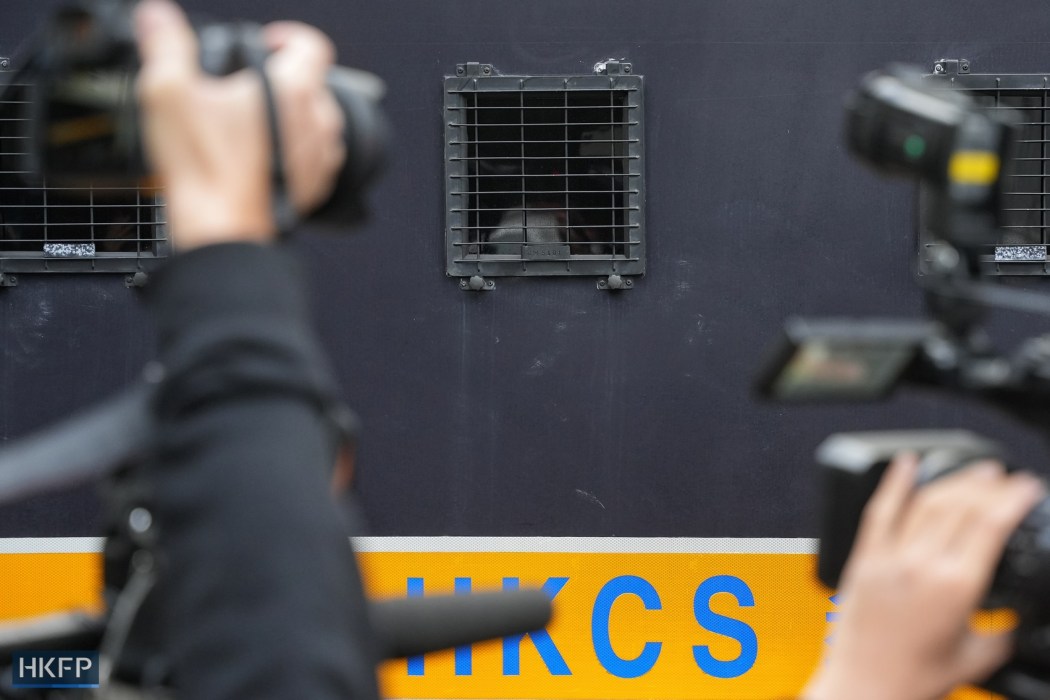
They were outnumbered, though, by police officers, who were equipped with bomb-sniffing dogs, armoured vehicles and a bomb disposal van, part of an enhanced security operation announced last Friday.
Lai, who recently marked his 76th birthday in high-security prison, was taken to court by Correctional Services Department vehicle at around 7.30 am on Monday. The founder of the defunct Apple Daily newspaper stands accused of conspiring to collude with foreign forces under the national security legislation, and taking part in a conspiracy to publish “seditious” materials under the city’s colonial-era sedition law.
He faces up to life in prison if convicted.
The charges have also been laid against three companies under Apple Daily’s parent company Next Digital – Apple Daily Limited, Apple Daily Printing Limited, and AD Internet Limited.
Lai entered the court at around 10 am, as proceedings finally got underway, more than a year after they were scheduled to begin.

About 100 people were lining up to secure seats in the public gallery at around 8.15 am. People wearing flag pins from Australia, UK and Canada were among those in line.
A university student from mainland China told HKFP he had been there for about an hour. He said he had read about Lai on Twitter and was curious how the trial would go.
“I think people shouldn’t be sentenced for their speech,” the politics student, who declined to share his name, said.
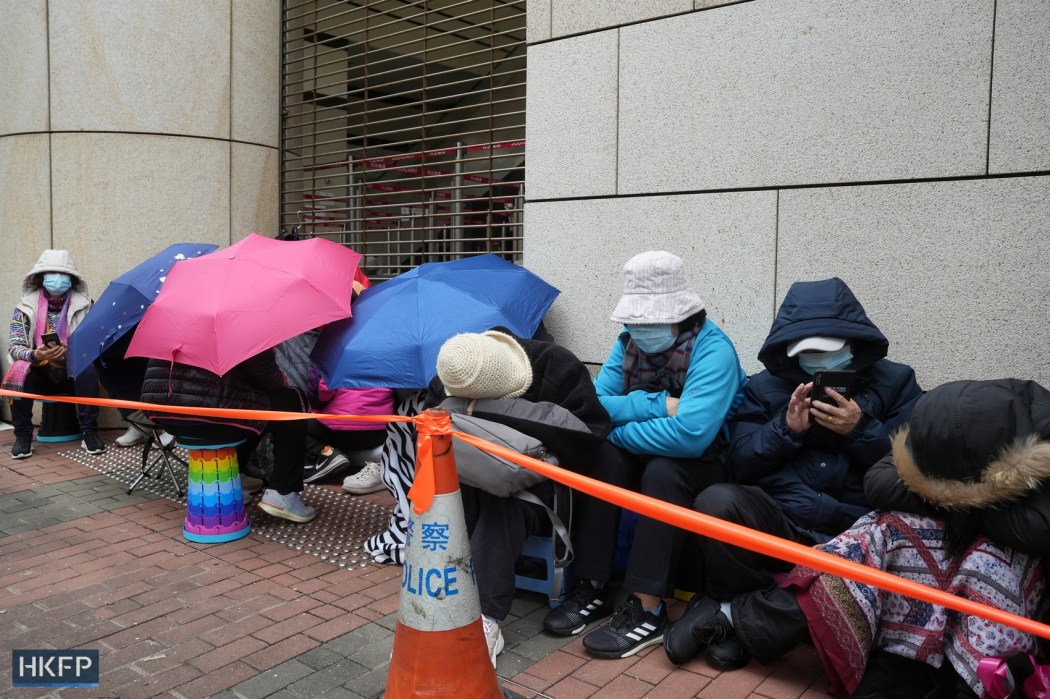
A woman in the line, who did not give her name, told HKFP she had been following the news about Lai closely. The retiree said she had never been to court before and did not know what to expect.
Veteran activist Alexandra “Grandma” Wong was encircled by several police officers holding cordon tape across the road from the courthouse. She was holding a British flag, which she became well known for carrying during the protests in Hong Kong in 2019.

Ryan, a 19-year-old politics student from mainland China, said he had been closely following political cases since the national security law was implemented and had been in court to watch the city’s largest national security trial to date, involving 47 democrats.
“Jimmy Lai was a genuine democrat, a moderate democrat. [The trial against Lai] is a major event in the encroachment of rule of law in Hong Kong,” he told HKFP in Cantonese.
Among the queue were several law students from the University of Hong Kong, who said they were there to observe the trial against Lai as a study of the national security law.

According to the judiciary’s website, 388 tickets are available for the closely watched trial, and special arrangements were in place to allow those unable to get into the main courtroom watch proceedings via livestream in other rooms at West Kowloon Law Courts Building.
When the trial against 16 of the 47 democrats who pleaded not guilty to conspiring to commit subversion opened in February, a number of media outlets reported that some people who queued for seats in the public gallery had been paid to do so.
Emilia Wong – whose partner Ventus Lau was a defendant in the case – wrote on Facebook at the time: “It is obvious that someone is trying to stop the general public from observing the case.”
Lai’s family members, including his wife Teresa and daughter Jade, were seen in the public gallery on Monday.

Lai, who is serving a five year, nine month sentence for fraud over property lease violations at Stanley Prison, was transferred to Lai Chi Kok Reception Centre closer to the court ahead of the trial, local media reported on Sunday citing sources.
A hill by historic building Jao Tsung-I Academy – from which reporters could normally photograph prison vehicles leaving the detention centre – was reportedly blocked off by staff from the academy, according to local media.
Police officers and vehicles were already stationed outside the court on Sunday. Additional metal barriers, as well as a movable gate, had also been set up.
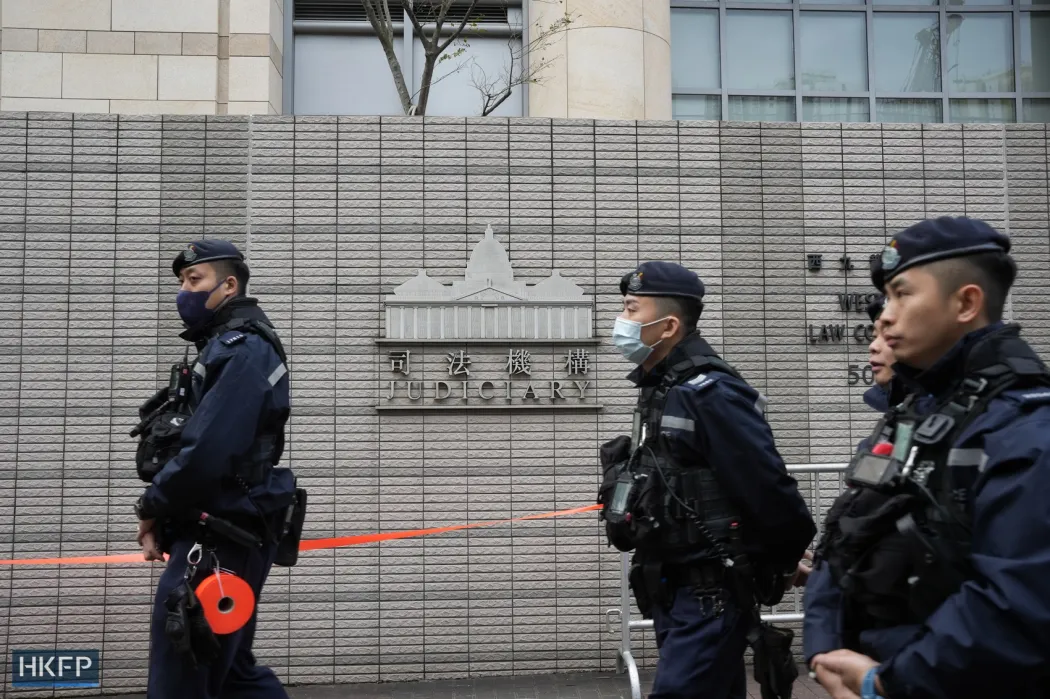
The trial, seen globally as a bellwether for media freedom in Hong Kong, is expected to last 80 days. Authorities have insisted that it has nothing to do with press freedom.
A trio of judges handpicked to oversee national security cases – Esther Toh, Susana D’Almada Remedios, and Alex Lee – will preside over proceedings, rather than a jury.
Lai was first arrested under the national security law in early August 2020, a little over a month after Beijing imposed the sweeping legislation on June 30 that year. The law – which followed a year of protests and unrest over a controversial extradition law – criminalised subversion, secession, collusion with foreign forces and terrorism.
Lai was charged in December 2020 and has been detained since then. He is currently serving a prison sentence for a separate fraud case.
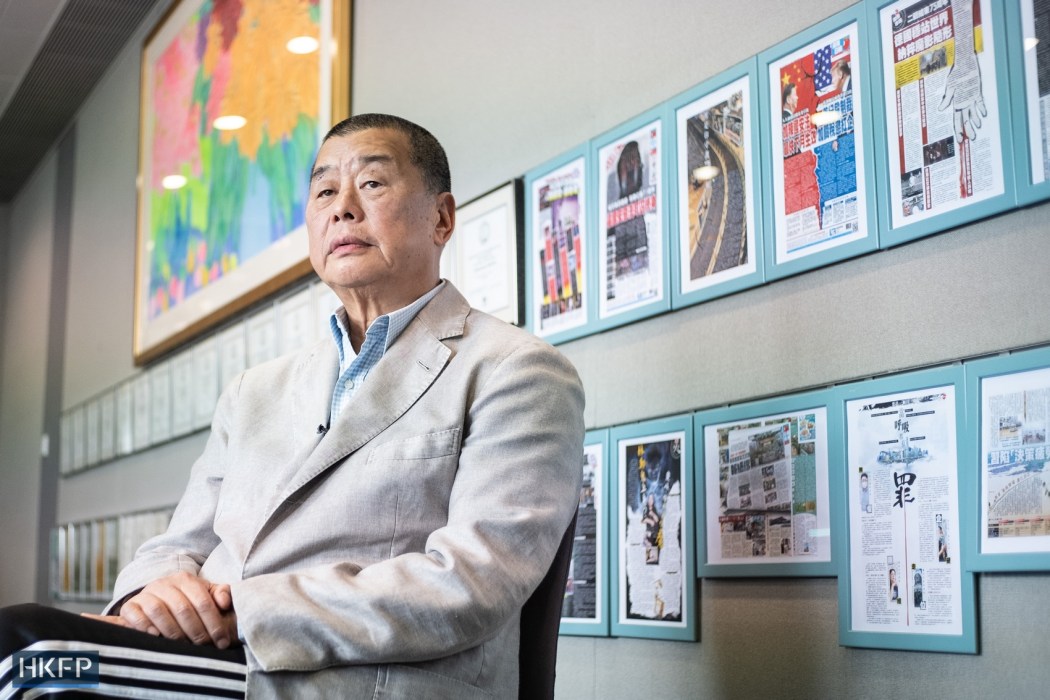
Six senior executives of Apple Daily were also charged alongside Lai. They pleaded guilty in November 2022 and will be sentenced after the conclusion of Lai’s trial. Some are set to take the stand against Lai as prosecution witnesses, according to the defence.
Delays and debates
Lai’s closely-watched trial was meant to begin on December 1 last year, but was delayed due to debate over whether Lai should be allowed to hire a UK lawyer, Timothy Owen.
His intention to hire Owen, a King’s Counsel (KC) and specialist in criminal, public and human rights law, was revealed in court last September. KCs, the equivalent of senior counsels in Hong Kong, need official permission to appear in the city’s courts.
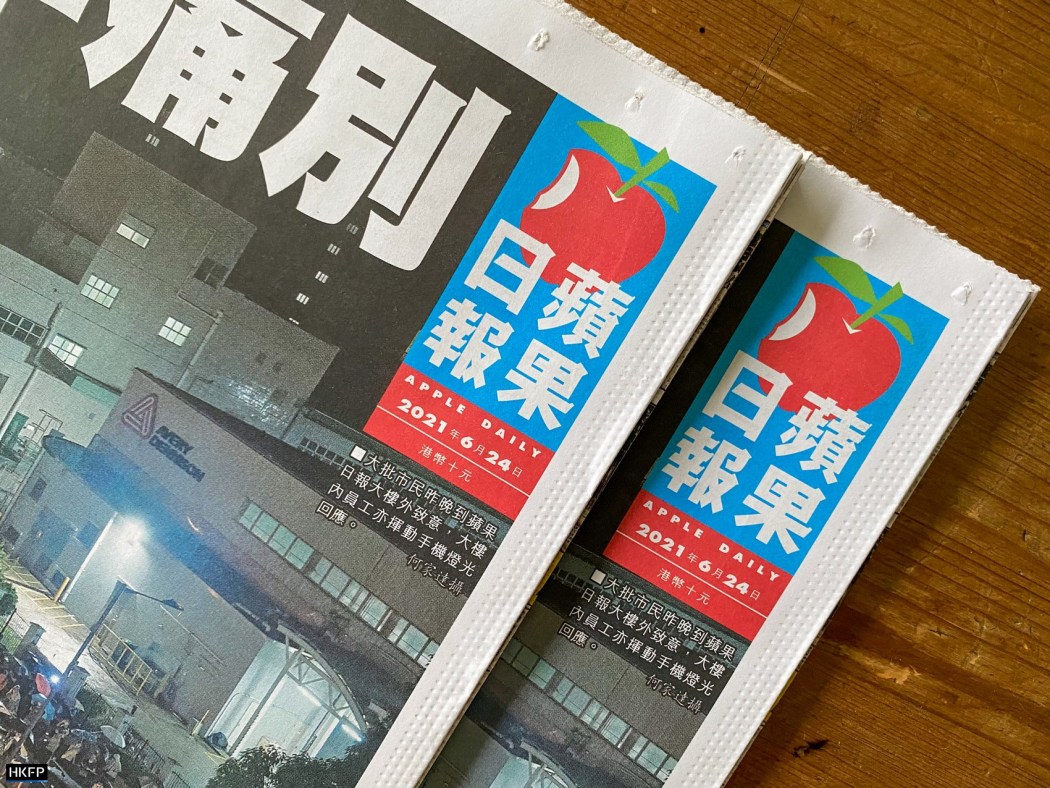
After Hong Kong’s top court allowed Lai to hire Owen despite appeals from the Department of Justice, the government invited Beijing last November to interpret the national security law and deliver a decision on whether overseas lawyers could be engaged. The trial was adjourned until September to await Beijing’s interpretation.
Beijing then determined that the city’s chief executive and national security committee had the power to decide if an overseas lawyer could participate in a case.
In August, judges said during a pre-trial review that the case would be adjourned to December to ensure that national security judge Alex Lee would be done with proceedings for the 47 democrats’ national security trial, which he is also presiding over.
Additional reporting: Hans Tse
Support HKFP | Policies & Ethics | Error/typo? | Contact Us | Newsletter | Transparency & Annual Report | Apps
Help safeguard press freedom & keep HKFP free for all readers by supporting our team























